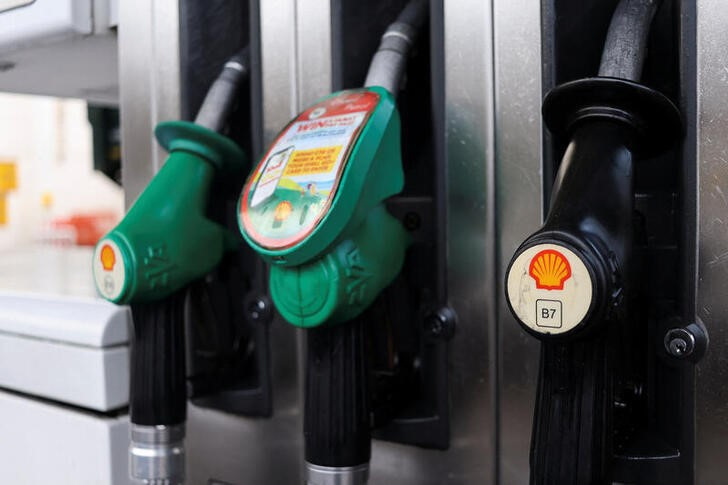By Andy Bruce and William Schomberg
(Reuters) -British inflation slowed sharply last month and key price gauges watched by the Bank of England also fell, bolstering bets on a November interest rate cut and helping finance minister Rachel Reeves before her first budget.
Annual consumer price inflation eased to 1.7% in September from 2.2% in August, the lowest reading since April 2021 and driven down by lower airfares and petrol prices, the Office for National Statistics said.
A Reuters poll of economists had pointed to a reading of 1.9%.
Sterling fell by four-fifths of a cent against the U.S. dollar and fell sharply against the euro too.
Interest rate futures showed investors were putting a 90% chance on two BoE quarter-point rate cuts by the end of this year, up from a roughly 80% chance on Tuesday.
“Today’s release removes another potential obstacle to the Monetary Policy Committee voting for a 25bps rate cut at its November meeting,” said Martin Swannell, chief economist adviser to the EY ITEM Club consultancy.
“The key question now is whether the MPC will step up the pace of rate cuts at subsequent meetings, and this scenario would likely require further good news on pay growth and inflation.”
Data on Tuesday showed British pay grew at its slowest pace in more than two years in the three months to August and vacancies fell again.
Britain’s finance ministry welcomed the fall in inflation, which offers a helpful backdrop for Reeves as she readies her first budget, due on Oct. 30.
A less inflationary outlook would slightly improve the economic and fiscal outlook for the budget as Reeves struggles to find the extra money to invest in public services and new infrastructure without spooking investors.
Her spending plans will be watched closely by the BoE.
CORE INFLATION COOLS
“Though the stars are aligning for a November rate cut, the upcoming Budget is the final hurdle as rate setters will want to assess the inflationary impact of any measures announced before loosening policy again,” said Suren Thiru, economics director at ICAEW, an accountancy body.
September’s inflation reading is also used as a base month for many social benefits. Wednesday’s weaker-than-expected reading may disappoint recipients, although it could offer Reeves a little extra leeway for her budget plans.
Core inflation, which excludes energy, food, alcohol and tobacco, slowed to 3.2% from 3.6% in August.
Services inflation – which the BoE views as the most important gauge of domestically-generated price pressure – sank to its lowest since May 2022 at 4.9% in September, down from 5.6% in August.
However, the drop reflected a plunge in air fares, which are a volatile component of the inflation basket – something the BoE will take into account next month.
The BoE had not expected services inflation to fall below 5% this year in forecasts it published in August, and the reading was below all expectations in the Reuters poll.
There were also signs of weaker inflation pressure ahead. Prices charged by factories for their goods fell by 0.7% in the year to September, the biggest fall since October 2020, during the COVID pandemic.

